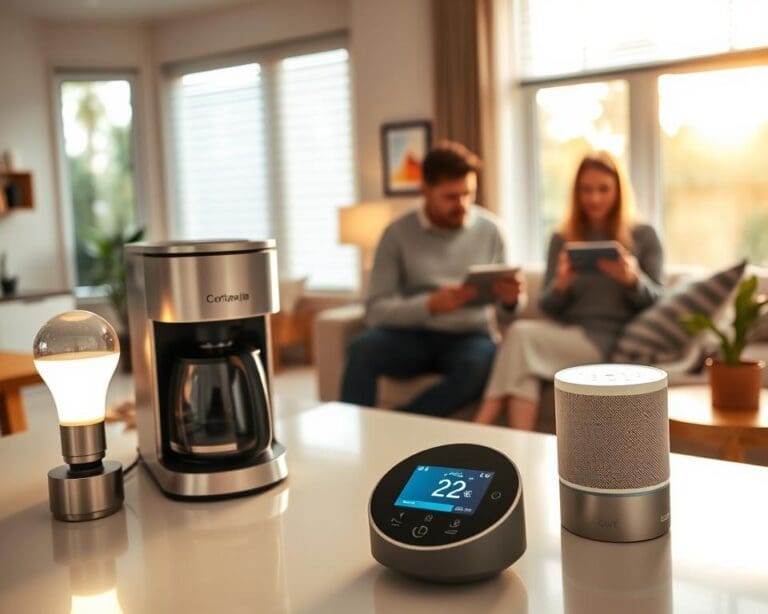Looking for the right air conditioning unit can be a bit overwhelming. But, it’s vital for keeping your space comfortable. When you’re choosing, it’s important to know the different kinds available. This ranges from portable units to split systems. Understanding each type’s benefits makes finding the right one easier.
There’s a growing need for efficient cooling solutions these days. Making an informed choice not only keeps your space comfy. It also helps with energy saving. Air conditioner guides can seem complicated at first. However, they’re great at helping you figure out what you need. Taking into account your room’s size and the cooling power, or BTUs, is key for the best performance.
Understanding Different Types of Air Conditioning Systems
Choosing the right air conditioning type for your space makes it more comfortable. There are split and portable units, each with benefits for different needs.
Split Units vs Portable Units
Split systems have an indoor and outdoor part. They’re quiet and save energy, perfect for permanent setups. They look good and work best if installed right to ensure good airflow. Professionals must install them.
Portable units, however, cool quickly and can be moved around. Ideal for renters or small spaces, they’re cheaper and easy to find. But, they’re not as good as split systems at cooling big areas.
- Split units: Quieter operation, stylish design, require professional installation.
- Portable units: Mobility, ease of use, generally less energy-efficient.
Central Air Conditioning
Central AC is great for large homes and buildings. It cools evenly through ducts, making the place feel nice all year. Setting it up can be complex and may need changes to the building. The costs are high, but it’s worth it for cooling several rooms efficiently.
In conclusion, knowing about different air conditioning systems helps in choosing the right one. It depends on what you need, how much you can spend, and your space.

Choosing the Best Air Conditioner for Your Space
Choosing the right air conditioner means knowing your room’s size and the BTUs needed. The correct BTU rating is key for the best cooling. A unit that suits your space will boost performance and comfort.
Importance of Room Size and BTUs
Room size is crucial for finding out how many BTUs you need. You should measure the room and calculate the cooling capacity required. Insulation and sunlight affect this too; a sunny room needs more BTUs.
Factors Affecting Cooling Efficiency
Many things affect how well an air conditioner works. Good insulation, ceiling height, and the amount of sunlight play a big part. The indoor unit needs a spot that’s easy to reach for upkeep, with plenty of air around it.
Outdoor units need airflow without blockages or strong sunshine. Features like programmable timers help use energy better, cutting down costs.
Energy Efficiency and Cost Considerations
It’s important to know how energy efficiency affects cost when picking air conditioning systems. Look at energy ratings, like Seasonal Energy Efficiency Ratio (SEER) and Energy Efficiency Ratio (EER), to judge a unit’s performance. Higher ratings mean the system is cost-effective, saving money over time.
Comparing Energy Ratings
To find efficient air conditioners, focus on high EER and SEER ratings. These show the system uses energy well, which means less energy use. ENERGY STAR® certified units meet strict efficiency criteria, offering big savings on energy bills.
Features like programmable thermostats and Wi-Fi connectivity boost energy savings. They let users control cooling based on their routine. This cuts down energy use while keeping homes comfortable.
Initial Costs vs Long-Term Savings
Start-up costs for air conditioners vary. For example, split system air conditioners cost £1,500 to £2,500, ideal for one room. Multi-split systems, for several rooms, range from £5,000 to £9,000. Portable units, the most affordable option, are priced from £150 to £350.
Though upfront costs matter, it’s wise to think about future savings. Portable air conditioners often have higher running costs. But, investing in an energy-efficient split or ducted system can lead to significant savings due to better performance over time.
- Split system installation: £1,500 – £2,500
- Multi-split system for six rooms: £5,000 – £9,000
- Portable units: £150 – £350
- Ducted systems: £1,380 – £14,160
- Window air conditioners: £500 – £1,000
Choosing the right air conditioning takes balancing your budget and efficiency goals. This approach ensures wise choices, offering comfort for years ahead.
Tips for a Successful Air Conditioner Purchase
Starting your search for the right air conditioner means doing some homework. Start by choosing trusted brands. Daikin, Mitsubishi, and LG are known for quality. It’s also vital to check return policies to protect your buy. Reading what other customers say helps avoid regret later.
Looking for the perfect air conditioner? Check out different kinds to find one that fits you best. Most people in the UK go for portable air conditioners. They are great for those who rent or like to move their cooling around. But, if you want something stronger, like a wall split system, it will cost more. This includes paying for special engineers to install it. Take your time to make sure you pick what’s right for you and your wallet.
Finally, knowing what you really need makes things much easier. Don’t forget to think about the size of your room and how powerful the air conditioner needs to be. Many need to change their first choice after thinking about these things. Don’t hurry your purchase. Being clear on what you need leads to better comfort and less wasted energy. A careful choice can mean getting an air conditioner that does more than cool your room; it improves your life.








